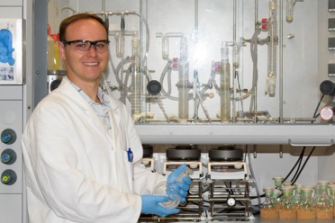Careers

Chemistry graduates can find employment opportunities in research, industry, as consultants and managers, in government, or in education, among others. There are career paths for people who prefer to work in an office, laboratory, or outdoors monitoring and protecting our environment. A survey of the salaries of professional scientists showed annual salary increases in both the private and public sector exceeding the increase in average weekly earnings and the increase in the CPI (details available from the RACI NSW office).
Chemical industry
Chemistry graduates who find employment in industry may undertake:
- research and development
- quality control
- sales and technical service, and
- technical and general management.
The Science and Advanced Science degrees with a major in Chemistry provide the strongest foundation for a career in the chemical industry and provide a versatility which is lacking from specialist degrees targeted at a particular industry.
Manufacturing and processing industries
Whether in the chemical industry itself, or in other manufacturing and processing industries such as agriculture, food processing, water and sewerage, electricity, steel, mining, paper production and so on, chemistry is central to product development and to the development of processes which are changing the whole outlook of Australian industry.
Marketing and consulting
Chemistry graduates increasingly find employment in marketing, where they are an important link between the development of new technologies and their application throughout industry. In many cases these graduates act as consultants and technical advisers to specific industries, using their specialist understanding of new products and processes to make a real contribution to their clients' opportunities in both production and the international market.
Government
The Government sector is also an significant employer of chemistry graduates. Government agencies undertake research, and employ chemists, in areas such as agriculture, environmental protection, health, and defence technologies. Regulatory departments which control quarantine, pharmaceuticals and health, food standards, water, soil conservation etc. employ chemists in scientific analysis, research, and policy development and administration. Other specialist areas within government such as forensic science, customs, and industrial safety require the fundamental skills and knowledge which chemistry graduates can offer.
Education
Chemistry graduates can also find employment in education, in high schools, universities and technical and further education colleges. Teaching other people the skills you have acquired in your chemistry degree is both challenging and very rewarding.

